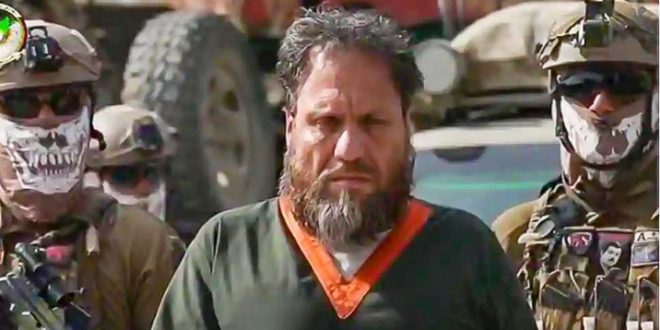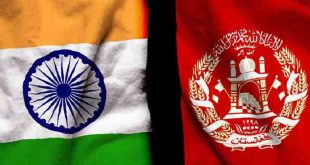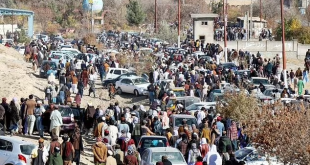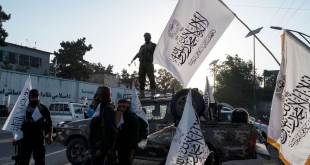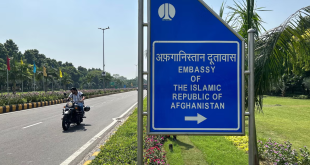By Shamim Shahid
Afghanistan’s Ambassador to Pakistan was summoned to Foreign Office at Islamabad on April 9th 2020 and was informed about resentment over arrest of Islamic States (IS) Khorasan Commander Aslam Farooqi and demanded his early surrender as he is involved in several violent and terror acts occurred in recent past throughout the country. Abdullah alias Aslam Farooqi was recently arrested by Afghanistan security forces from Southern Kanadahar, considered a strong hold of Tehrik Taliban Afghanistan-also called as Emirate Islami, who recently entered into a peace agreement with the United States through its Doha Qatar based political office.
According to an official hand out issued at Islamabad, “The Ambassador of Afghanistan to Pakistan was called to the Ministry of Foreign Affairs and conveyed Pakistan’s views with regard to the arrest of ISIS-K leader, Aslam Farooqi, by the Afghan authorities on 5 April 2020. It was emphasized that Pakistan had been expressing its concerns over the activities of this group, which were clearly detrimental to Pakistan. Pakistan’s position in this regard was being regularly shared with the Government of Afghanistan and others concerned. It was underscored to the Ambassador that since Aslam Farooqi was involved in anti-Pakistan activities in Afghanistan, he should be handed-over to Pakistan for further investigations. It was further underlined that the two sides should coordinate actions against the menace of terrorism, including through established mechanisms.”
Whatever might be intentions and motives of Pakistan’s resentment over arrest and demanding surrender of Aslam Farooqi but the move is surprising as for the first time it demanded extradition of an alleged militant arrested in Afghanistan. At the movement Pakistan is lacking accords pertained to extradition of wanted militants are criminals with Afghanistan. Similarly Pakistan has never demanded surrender of militants or criminals, sheltering/residing in Afghanistan. In recent past, banned TTP deputy leader from Bajaur Maulvi Faqir Muhammad and a close associate of Hakim Ullah Mehsud namely Latif Mehsud were prominent amongst Pakistani militants but none of them demanded by Pakistan.
However, since a long from time to time Pakistan has always, at each and every regional or international forums denounced presence of not only banned Tehrik Taliban Pakistan (TTP) militants but all those nationalists and progressive minded activists of different political parties who remain in Afghanistan. The history of such people or politicians starts from late tribal hero Ajab Khan Afridi, who along with brother Shehazada Khan abducted wife and daughter of a British Military officer from Kohat Cantonment in April 1923 last and still continue. During around one decade, a large number of freedom fighters from Sub Continent sheltered in Afghanistan during the colonial regime. Famous Pushtoon reformist and freedom fighter Khan Abdul Ghaffar Khan commonly known Bacha Khan was one amongst them who had had maintained his relations with Afghanistan even after independence in August 1947. Bacha Khan died on January 20, 1988 was laid to rest in according to his bequest at Jalalabad, adjacent to Khyber Pakhtunkhwa and considered winter capital of Afghanistan after landing of British colonial rulers in the region in mid of 19th century. Till his death in late 80’s, successive rulers of Pakistan since 1947 made objections over presence of Bacha Khan in Afghanistan and upon his return to Peshawar or native Charsada, he was always imprisoned and locked. His last arrest was made in early 80’s when had resisted the then military dictator Zia Ul Haq move of constructing controversial Kalabagh dam.
Prior to collapse of USSR in early 90’s leading nationalists and democrats like Sardar Khair Bukhsh Murree, Mahmood Khan Achakzai and Sardar Ata Ullah Khan Mangal from Baluchistan, Ajmal Khattak, Afrasiab Khattak and scores of others from Khyber Pukhtoonkhwa, Pakistan People’s Party’s Shaheed Meer Murtaza Bhutto along with others remain in Afghanistan on self-exile from time to time. Even in recent Baluch nationalists like Balach Murree and Brahamdagh Bugti also allegedly remain in Afghanistan. Balach Murree was brutally assassinated mysteriously across the border in Afghanistan.
Though nature of cases registered against these nationalists and democratic minded political activists was political but no one from Pakistan has made an attempt to demand extradition or surrender of these politicians. Almost of them have been accused of treason and carrying out deadly violent acts and explosions in Pakistan. But now Pakistan’s Foreign Office demand for Aslam Farooqi has generating too many questions. Aslam Farooqi is not the first or last of IS militants, arrested in recent months in Afghanistan. In previous November-December, US-Afghan forces jointly conducted military operations in Kunar and Nangarhar provinces, which lead to end of IS network in the region. During the operation, over four thousands IS militants including 1300 women and children have been arrested. Later the Afghan government announced amnesty for women, children and aged people. Majority of them from Pakistan and some of them have been made free and handed over to relatives through tribal elders from Afridi tribe of Khyber Agency.
In fact, the Doha Qatar Peace Agreement and successful military operations against the IS-Daaesh militants in Kunar-Nangarhar provinces now changing mode of insurgency in Afghanistan in particular and Pushtoons dominated areas of Pakistan in general. And in the changing scenario, all stakeholders are making attempts to make safe and secure its future interests. Couple of days back, a meeting of Taliban leaders from Quetta Shura also held, making comprehensive discussion on their future after peace agreement with the United States. Some top Shura members are unhappy and reluctant to abide upon the peace agreement with the US. Similarly some of the IS commanders and fighters, now making attempts for re-joining of banned TTP.
Since a long the authorities, politicians, religious figures and technocrats in Kabul despite their internal rifts and rifts are unanimously accusing Haqqani network for sponsoring and carrying out deadly violent/terror acts throughout Afghanistan. Compare to past, geo-strategic, politico-economic and social situation is totally changed. Afghanistan is no more a threat to Pakistan in the wake of fencing of controversial Durand Line and Afghanistan’s depending in Pakistan’s transit routes. On such grounds, there is possibility either for one-sided surrender of Kabul on the issue or Pakistan-choice extradition treaty regarding exchanging of wanted people. On such grounds it is believed that Aslam Farooqi’s arrest likely to make another shift in violent and terror acts, going on in the region since previous mid 70’s.
 Afghanistan Times
Afghanistan Times
